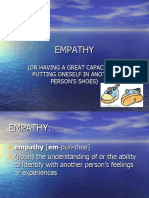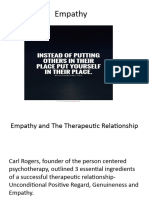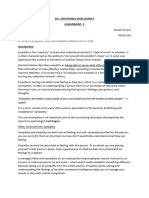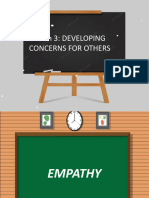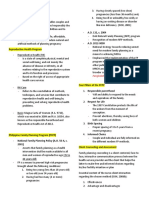0% found this document useful (0 votes)
72 views2 pagesModule16 Vrts
Empathy is the ability to understand another person's perspective and share their feelings. It has several benefits:
1. Empathy enables forming social bonds and relationships by allowing people to understand each other.
2. It helps control one's own emotions by learning how to regulate feelings even under stress.
3. Empathy encourages helping behaviors, making people more likely to help others when they feel empathy for them.
Uploaded by
Anne CamilleCopyright
© © All Rights Reserved
We take content rights seriously. If you suspect this is your content, claim it here.
Available Formats
Download as DOCX, PDF, TXT or read online on Scribd
0% found this document useful (0 votes)
72 views2 pagesModule16 Vrts
Empathy is the ability to understand another person's perspective and share their feelings. It has several benefits:
1. Empathy enables forming social bonds and relationships by allowing people to understand each other.
2. It helps control one's own emotions by learning how to regulate feelings even under stress.
3. Empathy encourages helping behaviors, making people more likely to help others when they feel empathy for them.
Uploaded by
Anne CamilleCopyright
© © All Rights Reserved
We take content rights seriously. If you suspect this is your content, claim it here.
Available Formats
Download as DOCX, PDF, TXT or read online on Scribd
/ 2


















